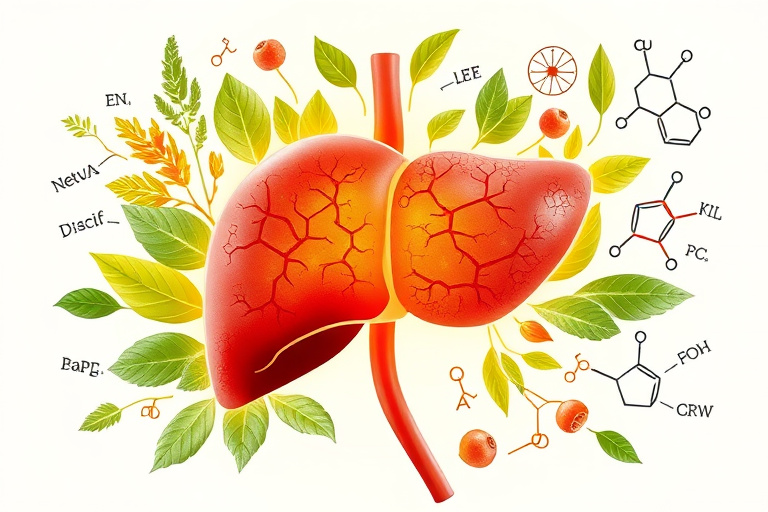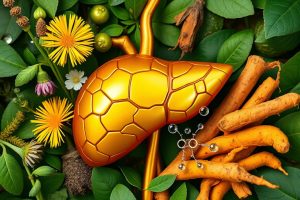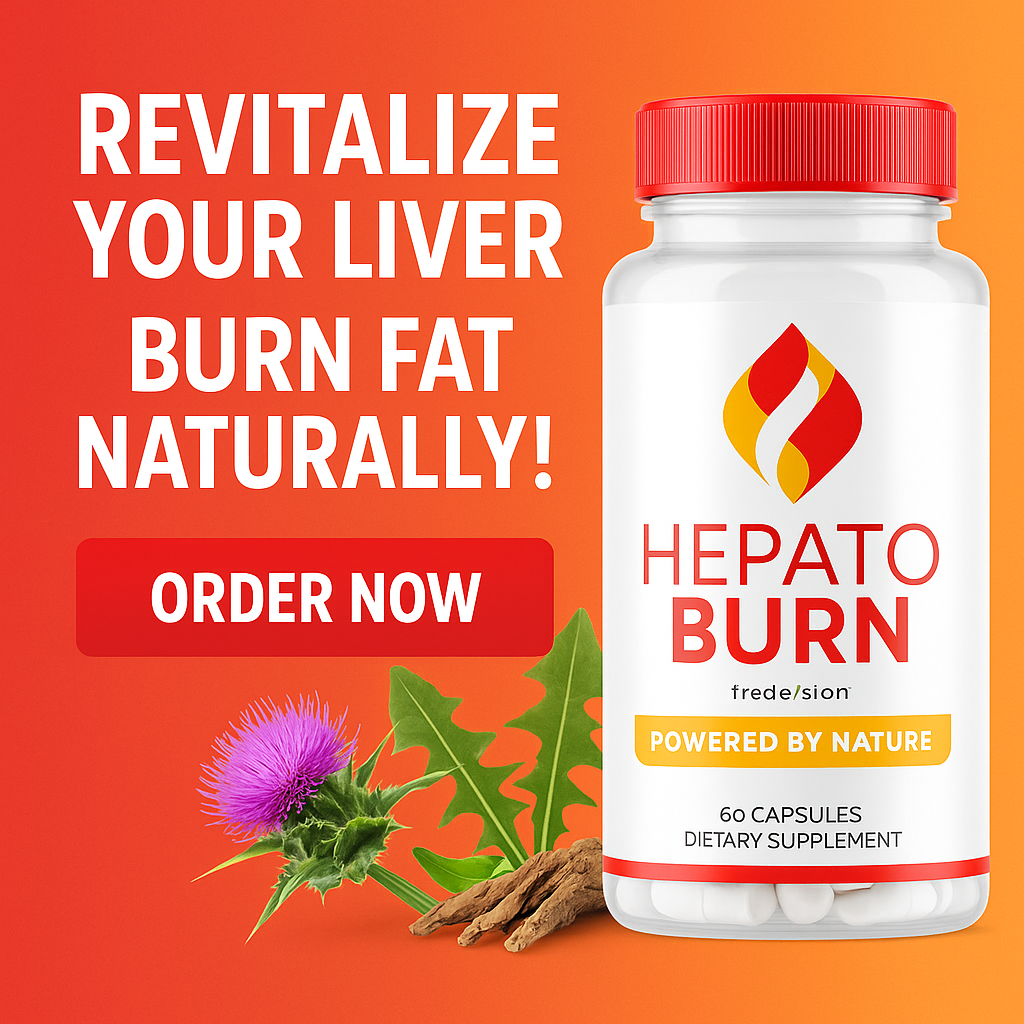Introduction
The health of the liver is vital for overall well-being, as it plays a central role in detoxifying the body, metabolizing nutrients, and supporting immune function. Maintaining liver health is essential, especially given the increasing exposure to environmental toxins, processed foods, and alcohol. Many individuals turn to dietary supplements to support their liver’s natural detoxification and regenerative processes.
Among the popular options are Hepatoburn and Milk Thistle. Both are widely used for their purported liver-supporting benefits, but they differ in composition, scientific backing, and safety profiles. This article aims to compare these two supplements to help you understand which might support your liver better based on efficacy, safety, and scientific evidence.
How Do Hepatoburn and Milk Thistle Support Liver Health?
The liver’s primary functions include detoxification, regeneration, and maintaining metabolic balance. Supporting these processes can help prevent liver damage and promote healing after injury or toxin exposure.
Milk Thistle’s main active component, silymarin, is renowned for its antioxidant and anti-inflammatory properties, which are believed to protect liver cells from damage and promote regeneration. It acts by stabilizing cell membranes and stimulating protein synthesis in liver cells.
Hepatoburn, on the other hand, contains a proprietary blend of ingredients formulated specifically to enhance liver detoxification and support liver cell regeneration. While its exact formulation varies, it typically includes herbal extracts, antioxidants, and other compounds aimed at boosting liver function and overall health.
Active Ingredients and How They Work to Promote Liver Function
Milk Thistle is primarily composed of silymarin, a complex of flavonolignans with potent antioxidant effects. Silymarin neutralizes free radicals, reduces oxidative stress, and inhibits inflammatory pathways, thereby protecting liver cells from damage. It also promotes the synthesis of new proteins, aiding in liver cell repair and regeneration.
In contrast, Hepatoburn features a proprietary blend of herbal extracts, vitamins, and antioxidants designed to support liver detox pathways, reduce inflammation, and enhance cellular repair. Its mechanisms include promoting enzyme activity involved in detoxification, reducing oxidative stress, and supporting immune responses that facilitate liver healing.
Both supplements leverage antioxidant activity, but while milk thistle’s effects are well-documented, Hepatoburn’s mechanisms are based on a combination of ingredients with complementary actions aimed at comprehensive liver support.
Scientific Evidence Supporting the Liver-Health Benefits of Milk Thistle
Numerous clinical studies have investigated milk thistle’s potential to aid in liver detoxification, protect against liver damage, and promote healing. Some research indicates that silymarin can improve liver enzyme levels in patients with liver diseases such as hepatitis and cirrhosis, suggesting a hepatoprotective effect.
However, the scientific community recognizes limitations in the existing research, including small sample sizes and variability in study design. While many studies support milk thistle’s role in liver health, consensus remains cautious, emphasizing the need for further rigorous trials.
Regarding Hepatoburn, available studies are limited, but its ingredients are supported by scientific literature for their antioxidant and anti-inflammatory properties. Some clinical support exists for its formulations, but more comprehensive research is needed to definitively establish its efficacy in liver healing and detoxification.
Safety Profile and Potential Side Effects of Hepatoburn vs Milk Thistle
Milk thistle is generally considered safe for most people when taken at recommended doses. Common side effects are mild and may include gastrointestinal upset, allergic reactions, or headaches. Rarely, it may cause hormonal effects or interact with certain medications.
Hepatoburn’s safety profile depends on its specific ingredients. Typically, herbal blends and antioxidants are well-tolerated, but potential contraindications or interactions with medications should be considered. Long-term safety data may be limited, so consulting a healthcare professional before use is advisable.
Overall, milk thistle tends to be better studied and tolerated, but individual responses vary. Both supplements should be used cautiously, especially by those with existing health conditions or on medication.
How Do Hepatoburn and Milk Thistle Compare in Real-World Effectiveness?
Clinical trials provide controlled evidence of efficacy, but consumer experiences and testimonials often reflect real-world results. Many users report improvements in liver function tests, reduced fatigue, and better overall liver health with milk thistle. However, responses can vary based on dosage, formulation, and individual health status.
Hepatoburn’s effectiveness is supported by its ingredient profile, but scientific validation through large-scale studies is still emerging. Factors such as proper dosing, formulation quality, and individual genetics influence outcomes.
Current scientific consensus suggests that while milk thistle remains a well-supported option, supplements like Hepatoburn may serve as complementary or alternative choices for those seeking natural liver support, especially when tailored to specific health needs.
Making an Informed Choice: Which Supports Liver Health Better?
When choosing between Hepatoburn and Milk Thistle, consider differences in ingredients, scientific backing, safety, and personal health conditions. Milk Thistle’s extensive research and established safety profile make it a reliable choice for many, but newer formulations like Hepatoburn aim to provide broader support through proprietary blends.
Practical considerations include cost, availability, and whether you have specific health concerns that might influence your choice. Consulting with a healthcare professional can help determine the most appropriate supplement for your needs.
Based on current research, both options can support liver health, but understanding their differences helps you make an informed decision aligned with your health goals.
Final Thoughts: Are You Ready to Support Your Liver Naturally?
Supporting your liver naturally involves more than just supplements. A balanced diet, regular exercise, limiting alcohol intake, and avoiding toxins are crucial components of liver health.
Before starting any supplement, especially for liver support, it’s important to consult healthcare professionals to ensure safety and appropriateness. Ongoing scientific research continues to shed light on effective strategies for liver detox and healing, emphasizing the importance of evidence-based choices.
Prioritize a holistic approach to liver health, combining natural support with healthy lifestyle habits, to achieve the best outcomes for your well-being.




